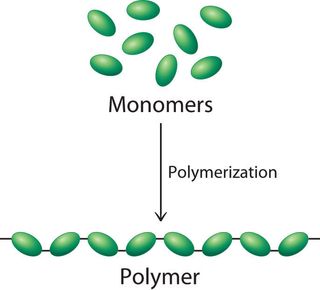Polymers in Building: Stronger, Less heavy, and Much More Sturdy
Polymers in Building: Stronger, Less heavy, and Much More Sturdy
Blog Article
Checking Out the Varied Applications and Advantages of Polymers in Different Industries
Polymers, with their varied range of residential or commercial properties and functionalities, have actually ended up being indispensable in different sectors, each gaining distinct advantages from their application. From improving safety and efficiency in the auto industry to changing clinical tools in the health care industry, polymers play an essential duty.
Automotive Industry Applications
Polymers play a critical duty in boosting the efficiency and durability of different components within the vehicle field. These versatile products are thoroughly utilized in the production of different components, ranging from indoor parts to under-the-hood applications. One prominent use polymers in the auto sector is in the production of lightweight components. By changing conventional steel get rid of polymer-based options, lorries can achieve better gas performance without jeopardizing on toughness or security.

Health Care Industry Advantages
In various health care applications, the benefits of making use of polymers are widely identified for their varied series of useful residential or commercial properties. Polymers play a critical function in the medical care market due to their versatility, biocompatibility, and cost-effectiveness. Among the main advantages of polymers in medical care is their capability to be customized to particular demands, such as flexibility, longevity, and biodegradability, making them suitable for a wide variety of medical applications.
Polymer-based materials are thoroughly utilized in clinical devices, such as catheters, implants, prosthetics, and drug shipment systems, as a result of their biocompatibility and ability to imitate all-natural cells. These materials can decrease the danger of allergic responses or rejections, boosting individual security and outcomes. Additionally, polymers are lightweight, making them suitable for wearable medical devices and ensuring individual convenience.
Moreover, polymers enable the growth of ingenious treatment approaches, such as hydrogels for cells engineering and nanocomposites for targeted medicine distribution. Their convenience of processing and sanitation makes them crucial for maintaining high requirements of hygiene in medical care setups. Generally, the diverse advantages of polymers contribute substantially to innovations in medical technology and patient care.
Ecological Advantages of Polymers

Additionally, polymers can add to energy financial savings because of their light-weight nature. In sectors such as transportation, lightweight polymer products can assist reduce gas usage and greenhouse gas exhausts. Additionally, polymers can make it possible for the advancement of energy-efficient items such as insulation products that improve power conservation in buildings.
Furthermore, polymers play a crucial function in reducing water air pollution. The usage of polymer-based purification systems can efficiently get rid of contaminants and pollutants from wastewater, securing water resources and communities. On the whole, the ecological advantages of polymers make them important properties in advertising sustainability and environmentally friendly methods across different markets.
Polymers in Electronics and Modern Technology
Considering the raising demand for innovative and lasting solutions in modern-day sectors, the integration of innovative polymer technologies in the world of electronic devices and technology has actually emerged as a crucial technique for driving effectiveness and performance. Polymers have changed the electronic devices industry by enabling the production of lighter, more flexible, and sturdy electronic gadgets. From mobile phones to medical tools, polymers play a crucial role in improving item style and capability.
One considerable benefit of polymers in electronic devices is their insulating residential properties, which help shield delicate digital elements from environmental aspects and electrical disturbance. Additionally, polymers are vital in the advancement of versatile displays, wearable special info technology, and published electronics, supplying countless possibilities for creating wise and interconnected devices.
In addition, using polymers in digital packaging has actually brought about advancements in miniaturization and thermal administration, improving the general efficiency and integrity of electronic systems. As innovation proceeds to progress, the versatility and versatility of polymers will certainly drive additionally development in the electronic devices sector, shaping the future of modern technology.
Role of Polymers in Building and Facilities
Polymers supply various advantages in the building market due to their convenience, sturdiness, and cost-effectiveness. One key role of polymers in building is their usage in layers and sealants, giving protection versus environmental factors such as moisture, UV radiation, and deterioration.
Furthermore, polymers play a vital function in lasting construction techniques by enabling the growth of energy-efficient structures. Shielding products made from polymers aid manage indoor temperature levels, decreasing the requirement for home heating and cooling down systems and eventually lowering energy consumption. The use of polymer-based compounds in framework tasks such as bridges and roads boosts their longevity and minimizes upkeep expenses. On the whole, the unification of polymers in building and framework showcases their considerable influence on read here modern design methods.
Final Thought
In verdict, polymers play a critical function in various markets such as automotive, healthcare, environmental, electronics, and construction. Their flexible homes make them useful in developing ingenious services and products. From improving gas effectiveness in cars to improving clinical tools, polymers offer various benefits. In addition, their influence on reducing waste and promoting sustainability highlights their significance in contemporary applications. The prevalent use polymers demonstrates their considerable contribution to progressing technology and boosting quality of life. website here
Report this page